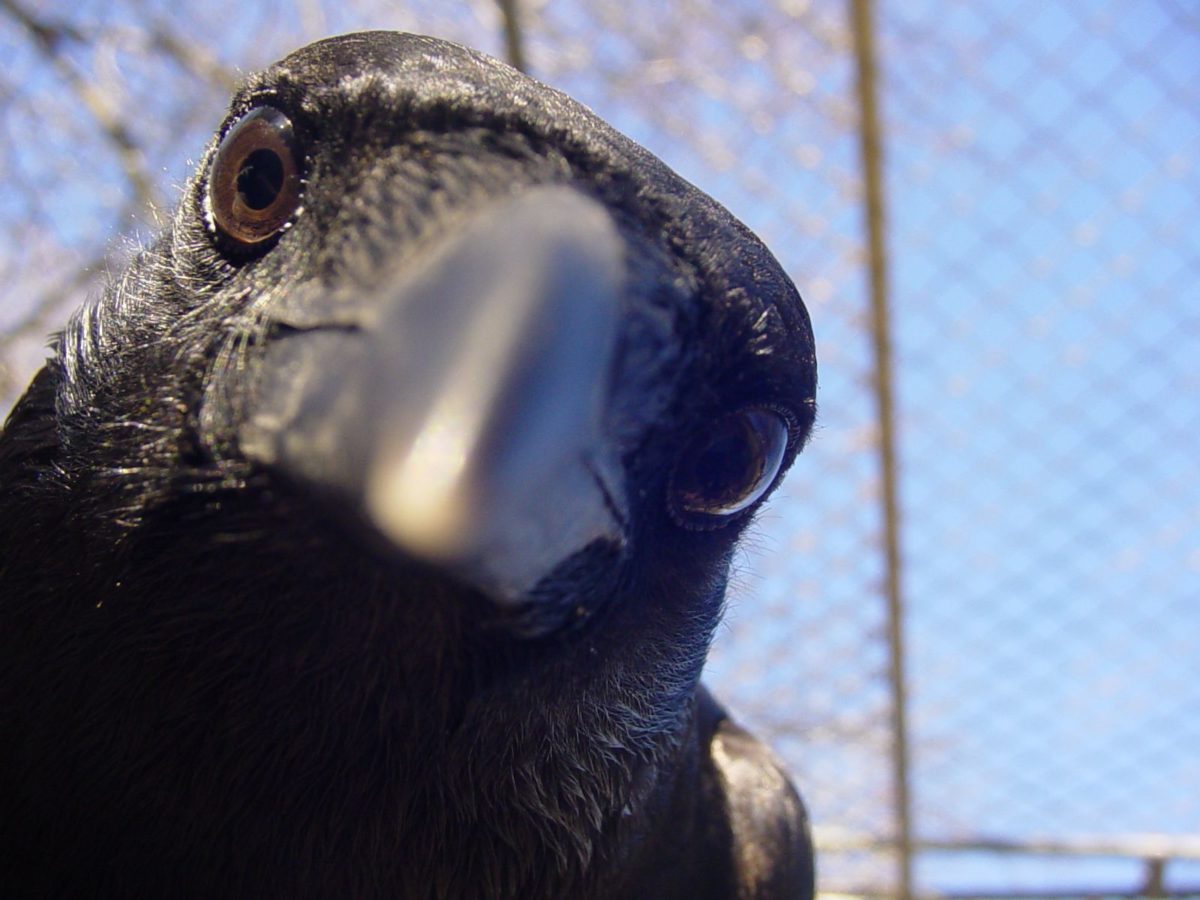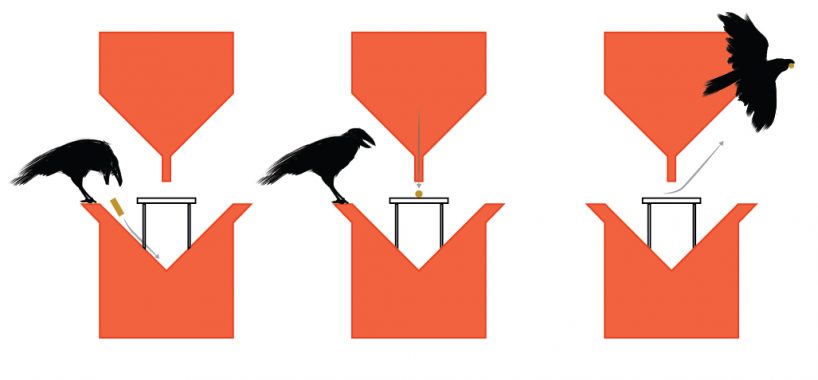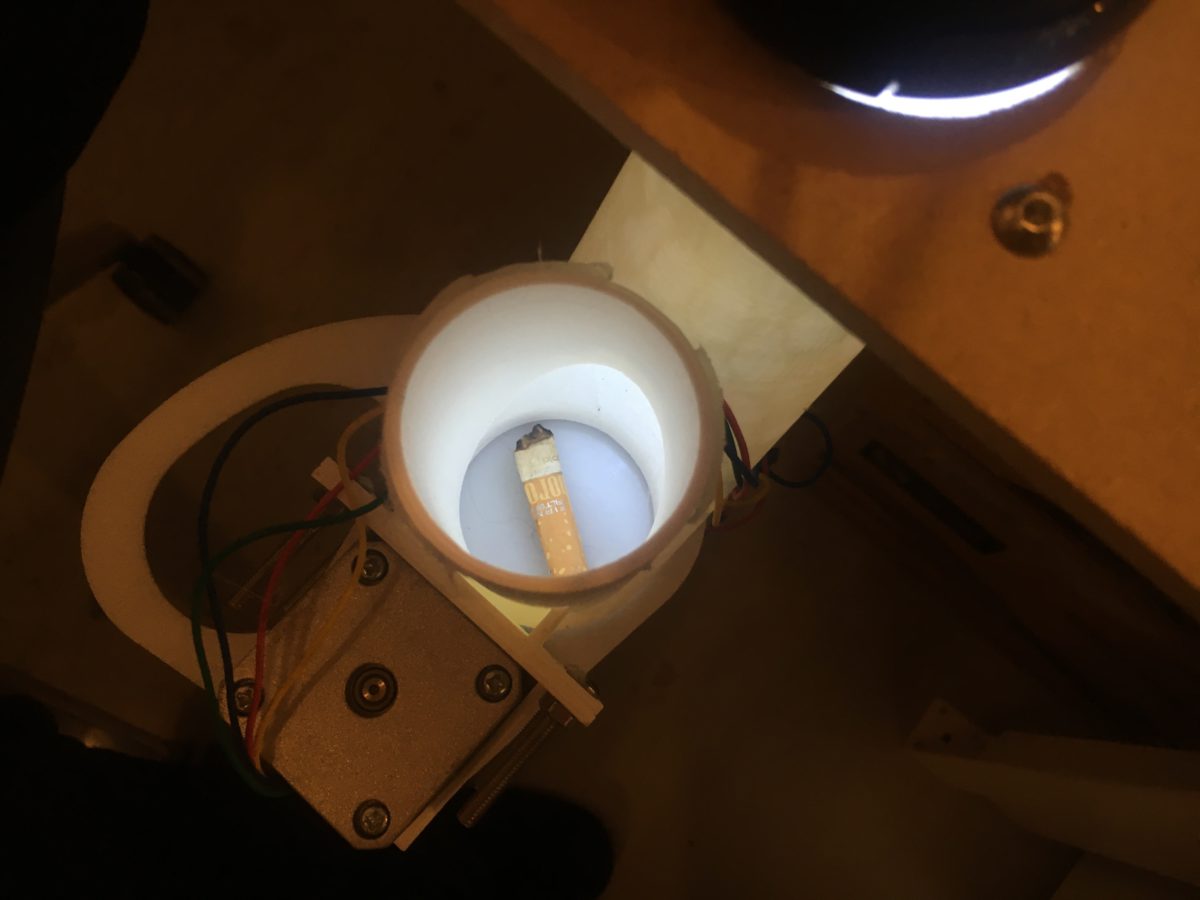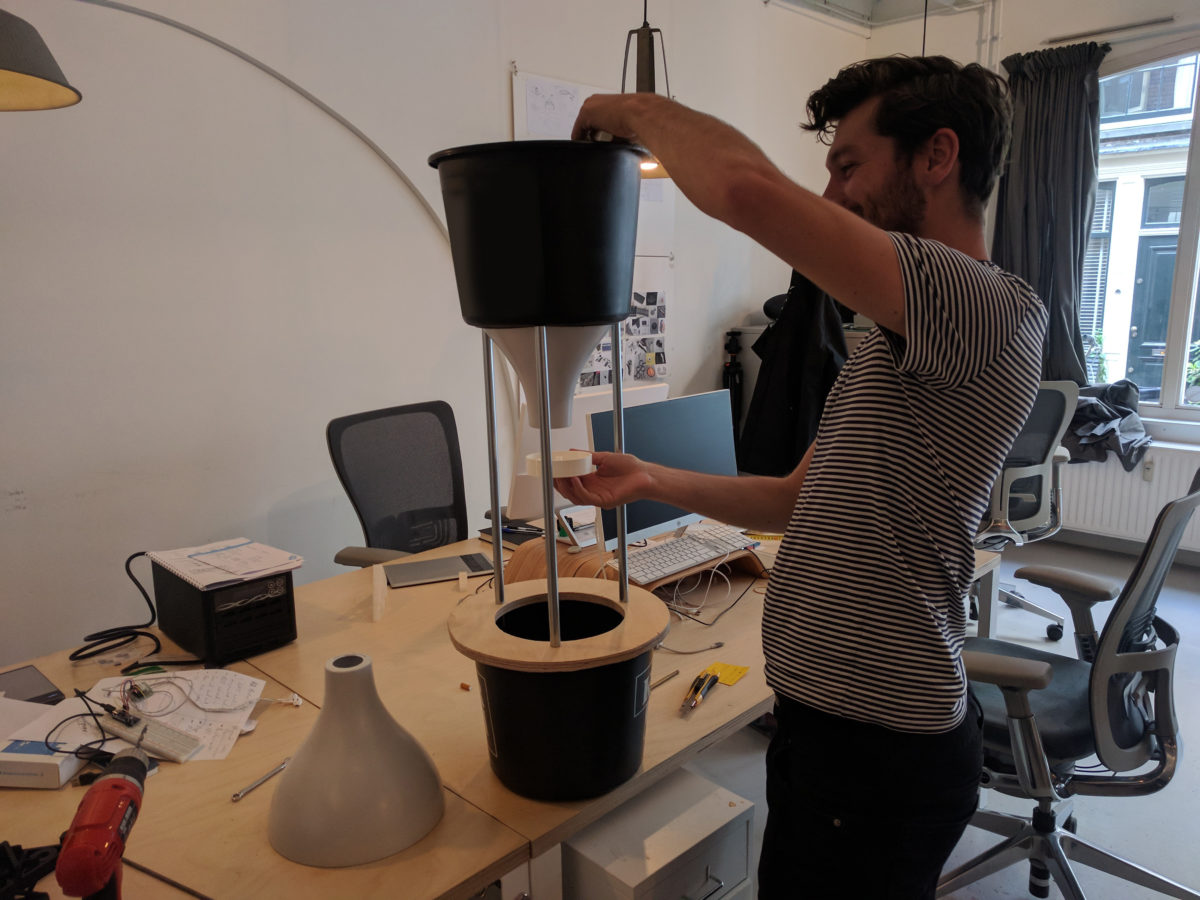Dutch startup teaches crows to exchange cigarette butts for food

Cigarette butts - one of the main sources of garbage on the planet. Sometimes it’s generally difficult to find a clean place on the street: cigarette butts everywhere — on roads, in parks, on grass, right under your feet. Every year, people smoke 4.5 trillion cigarettes, and a considerable part of them is thrown past garbage cans. Only in the Netherlands more than 6 billion cigarette butts fall onto the streets each year.
About 98% of cigarette filters are manufactured using plastic filters (cellulose acetate), whose decomposition period is up to 10-12 years.
Dutch activists came up with an original solution to the problem. But what if you teach how to collect cigarette butts of the smartest birds, who are already everywhere sneaking around the neighborhood - a raven? Thus was born the open-source project Crowbar .
The idea is to train the crows to exchange cigarette butts for food through special open-source feeders using positive reinforcement.

Positive reinforcement is an event that coincides with an action and leads to an increased likelihood of re-doing this action. In this case, the Dutch teach the crows that if they bring a cigarette butt to the feeder, they will receive a reward, that is, food.
The Crowbar feeder is an automatic device that simultaneously performs the training of crows and then serves to collect cigarette butts and feed the birds. The crow brings a cigarette butt and throws it into the bottom of the device. The top-mounted camera detects a cigarette butt (cigarette filter) - and gives a piece of food to the table as a reward.
Engineers have already made the device, and in the near future they are going to check it in real conditions. In theory, it is enough to obtain food in such a way that a single bird learned, and then this knowledge will spread among them exponentially. At least in theory, everything is planned.



Dutch street fighters borrowed the idea from American entrepreneur Joshua Klein, who taught the crows to bring the found coins in exchange for food in the Crow Box device on the Arduino - and in this way, the cunning Joshua earns money.
Intelligence raven
The family of ravens (various species of crows and ravens, rooks, magpies, jackdaws) are the smartest birds. Watching their behavior, you will soon find out how clever they are. The ravens are still the natural nurses of cities, picking up trash for people. They are able to penetrate everywhere, into the most secluded corners of the city nooks and crannies.
According to scientists, some species of crows have intelligence comparable to that of primates. Some of them even know how to make and use up to three tools at the same time for food extraction. So, the Novokledonsky crow makes an instrument, specially biting a twig. Moreover, it is able to make a tool of three types: just break off the wand, make a hook from the twigs or bite on a sheet of pandanus and make a bayonet. The bird takes it in its beak and sends it forward, acts like a bayonet on it and imposes insect larvae on it ... The crow can take the manufactured tools with it, using them in the future. In one of the experiments, the birds were given a jug of water and a worm on the surface, which was impossible to reach with a beak. So, the crows quickly begin to throw stones at the pitcher in order to raise the water level - and get food. They really understand the mechanics of Archimedes' law, choosing larger stones and refusing a jug that is filled with sawdust, not water. Some experiments show that birds are able to learn how to make new implements if necessary.
Using ravens tools in a certain order
Ornithologists note that the handling abilities of these birds are quite comparable with the lower monkeys, who have five fingers. In general, scientists in our time no longer question the intelligence of a raven. It is unlikely that anyone has any doubt that they are able to assimilate the scheme of exchanging cigarette butts for food. The only fear is that the high intelligence of the crows will allow them to figure out how to deceive the feeder and get food from it in a simpler way, that is, without cigarette butts.
In addition, it is unclear whether the bird, which has learned to get food in exchange for cigarette butts, share this knowledge with relatives or keep the secret with them. On the other hand, scientists have proven that crows are successfully learning new skills, watching other crows, so that the cleverest crow is unlikely to be able to keep a secret, except by observing exceptional conspiracy measures.
There is still some danger that if cigarette butts run out on the streets, the crows will begin to pick up cigarettes from people or stalk smoking citizens - and pick up cigarette butts on the fly. But the probability of this is not too great. Still, cigarette butts on the streets should be enough for them to exchange for food.
All Articles